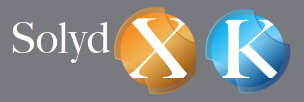 | |
| Developer | Arjen Balfoort and community members |
|---|---|
| OS family | Linux (Unix-like) |
| Working state | Active |
| Source model | Open source and closed source |
| Initial release | 28 February 2013 [1] |
| Latest release | 12 |
| Marketing target | home users, small businesses and non-profit organizations |
| Available in | Multilingual |
| Update method | APT, custom UpdateManager, Synaptic |
| Package manager | dpkg |
| Platforms | i386, AMD64, ARM architecture (Raspberry PI2 and PI3) |
| Kernel type | Monolithic (Linux) |
| Userland | GNU |
| Influenced by | Debian Stable and testing |
| Default user interface | KDE Plasma 5 (default in SolydK), Xfce (default in SolydX) |
| License | Free software, mainly the GNU GPL, and other licenses |
| Official website | solydxk |
SolydXK is a Dutch Linux distribution based on Debian. [3] It aims to be simple to use, providing an environment that is stable, secure, and ideal for small businesses, non-profit organizations and home users. [4]
Contents
SolydXK includes proprietary software such as Adobe Flash, Steam and optional closed-source drivers to provide initial multimedia usage and gaming on Linux. [5]